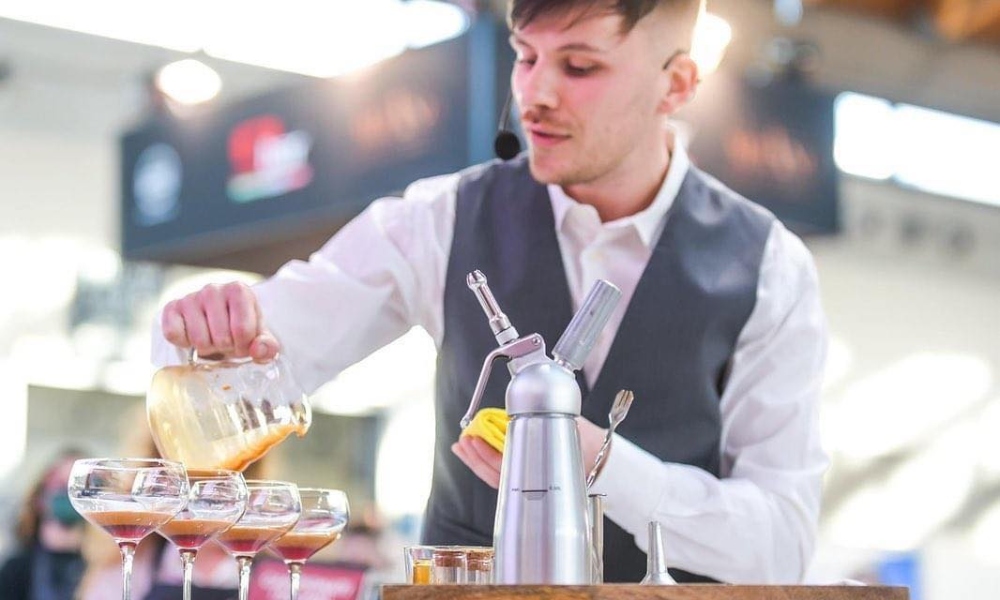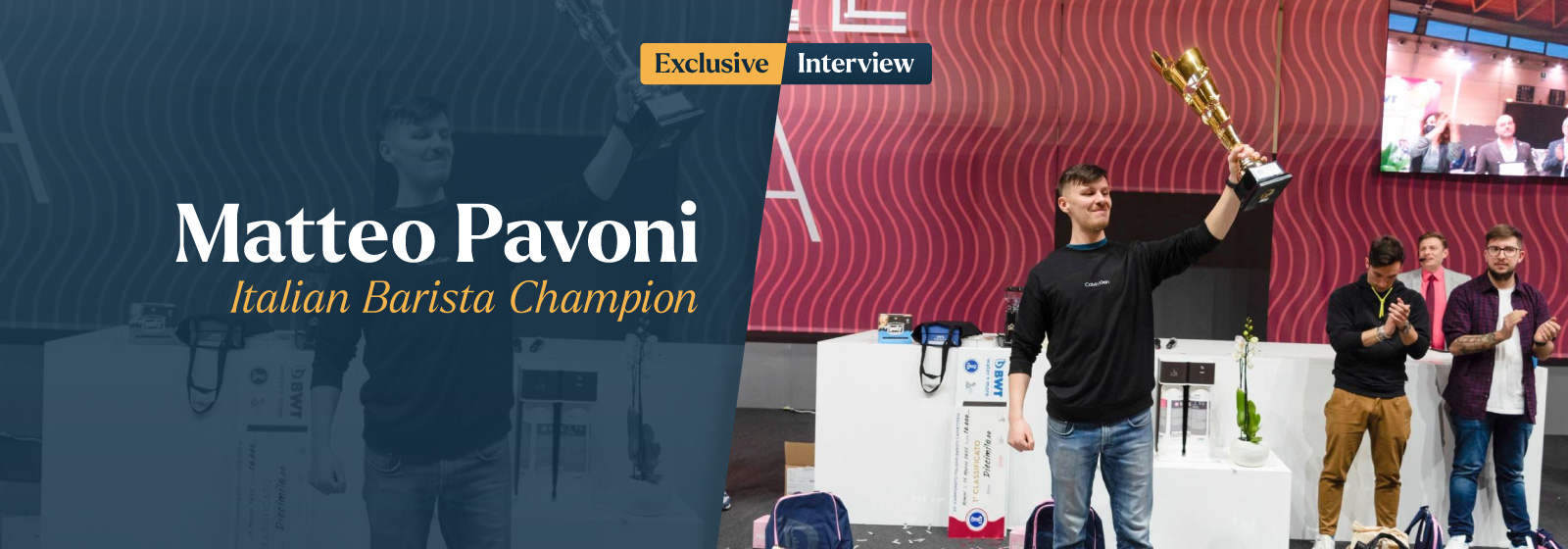Matteo Pavoni: “It took a week to register what was happening”
Matteo Pavoni speaks to New Ground about being crowned 2022 Italian Barista Champion, the importance of competitions for the industry, and what he’s doing to prepare for the WBC.
It was a moment of pure elation for Matteo Pavoni when he won the 2022 Italian Barista Championship. Years of training and competing, in a journey that started in London nearly a decade ago, had finally paid off, leaving him overjoyed – and a little stunned.
“The first week after I couldn’t really understand what was happening,” he says. “I was so happy.”
For the competition, he chose a natural carbonic macerated Panamanian Geisha from Finca Don Benjie – a coffee Matteo describes as “outstanding”.
“It wasn’t a heavy, fermented coffee; it was really clean and sweet. It tasted a lot like red fruits and redcurrant. It was really delicious.”
Yet while he gives the coffee “80% of the credit” for his victory, his carefully prepared presentation was also impressive. Focusing on degassing times, he presented the same coffee rested over three different time periods: one was freshly roasted, one was 11 days old, and one was 22 days old.
He used this as a springboard to discuss roast dates and how different resting times can influence a coffee’s characteristics. As well as being an interesting topic, Matteo says the way he conveyed the information was key.
“[The judges] told me the presentation was well made, smooth, and easy to follow, which is important for a complicated topic,” he explains. “I think that’s what really made the difference.”

The importance of barista competitions
While 2022 is the year Matteo will remember most, it’s not the first time he’s competed in a barista championship.
After moving to London in 2012, he started working in a coffee shop in Trafalgar Square and, within a few months, found himself competing in local competitions.
This led him to the UK Barista Championships before he moved back to Italy to set up his coffee roastery, Peacocks Coffee. In 2019, he took part in the Italian Barista Championships for the first time, where he finished fourth.
For Matteo, barista championships play an important role in the industry, particularly in Italy, a country where tradition is embedded into the coffee culture. However, since the first barista competition took place, he believes, among other things, that they have helped foster a greater appreciation for specialty coffee.
“In Italy, it can be quite difficult to speak about specialty coffee to regular consumers,” he says. “So I think competitions are a very good occasion to do that.
“They bring a lot of attention to coffee. I got in touch with a lot of people who were not into specialty coffee, but they saw the presentation, they saw me talk about degassing times, and they were so interested in it they started asking more.”
Beyond the coffee itself, he says they have also helped change perceptions of the barista profession. Rather than being seen as something young people do to make ends meet, it is being increasingly embraced as an esteemed career.
“With these competitions and events, we are changing the focus of what it means to be a barista,” Matteo explains. “People here are getting more into it. It’s not at the level of a country such as Australia yet, but there have been improvements.”
Training for the WBC
Winning the nationals is an automatic ticket to the prestigious World Barista Championship (WBC). Held annually, it is one of the most important coffee competitions and draws in some of the top baristas from around the globe.
This year, the WBC will be held at the Melbourne International Coffee Expo (MICE) in September. This gives Matteo just a few months to prepare for arguably the biggest competition of his career.
But rather than doing most of it on his own – as he did for the Italian Barista Championship – this time round he plans to bring in some support.
“For the nationals, I received some tips from people,” he says, “but for the most part I was my own coach. For the WBC, I will have someone help me more because it’s a totally different thing. I don’t want to go there and think I can do everything on my own. I know I need someone to help, coach, and train me.”
While Matteo says he plans to use his winning routine as a jumping off point, his focus will be on delivering something of value to the coffee industry. He will also need to dedicate considerable time to sourcing a coffee that can compete on the world stage – which is no easy task.
However, whatever happens, Matteo says that he is forever grateful for the recognition competitions bring to his work in the coffee industry.
“To me, winning means a lot because what I bring to the competition is my approach to work,” he says. “The way I select the coffee, the way I roast it and the way I talk with my customers about it. Coming first is not just a reward about the competition; it’s a reward for everything I put into coffee.”








